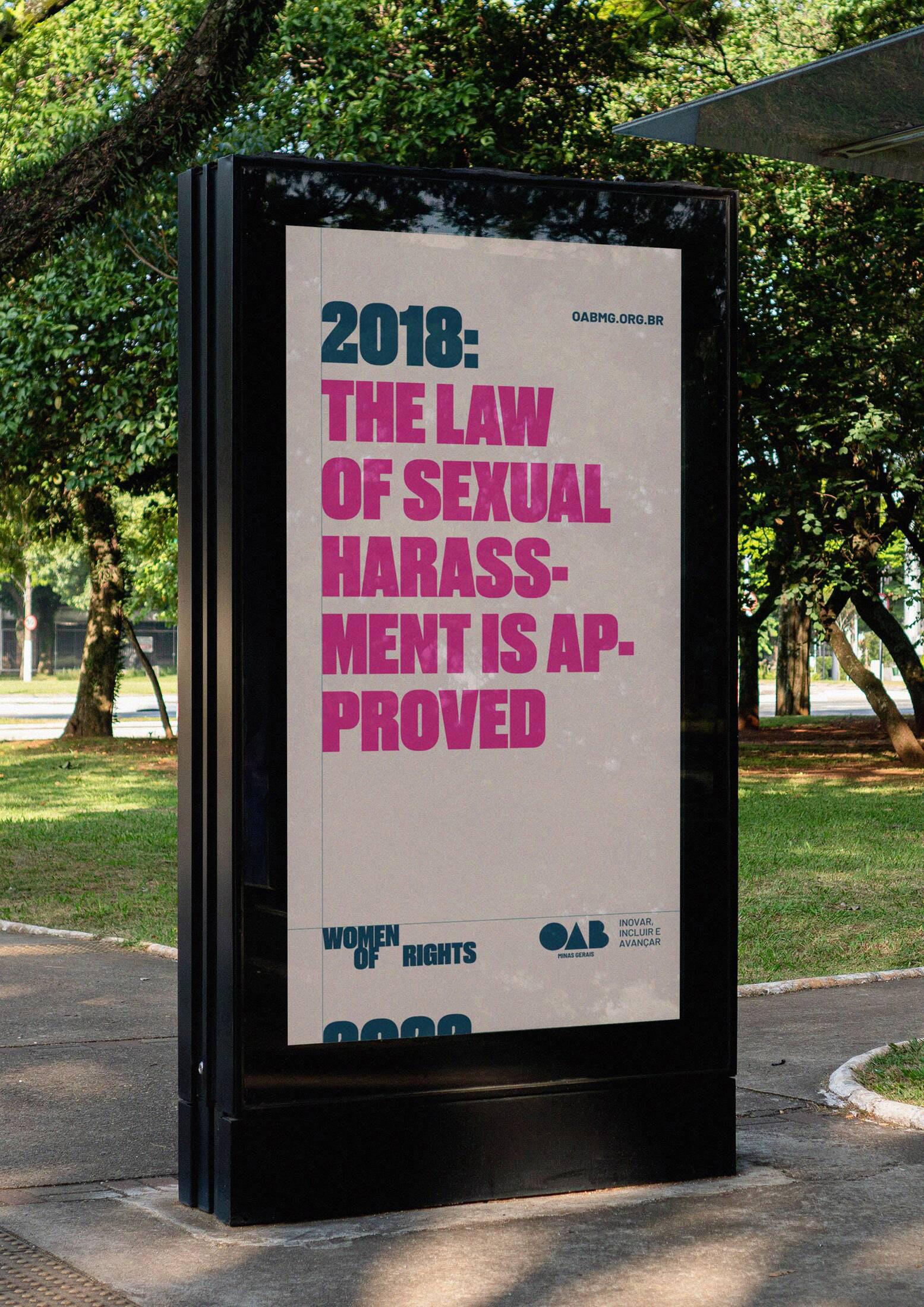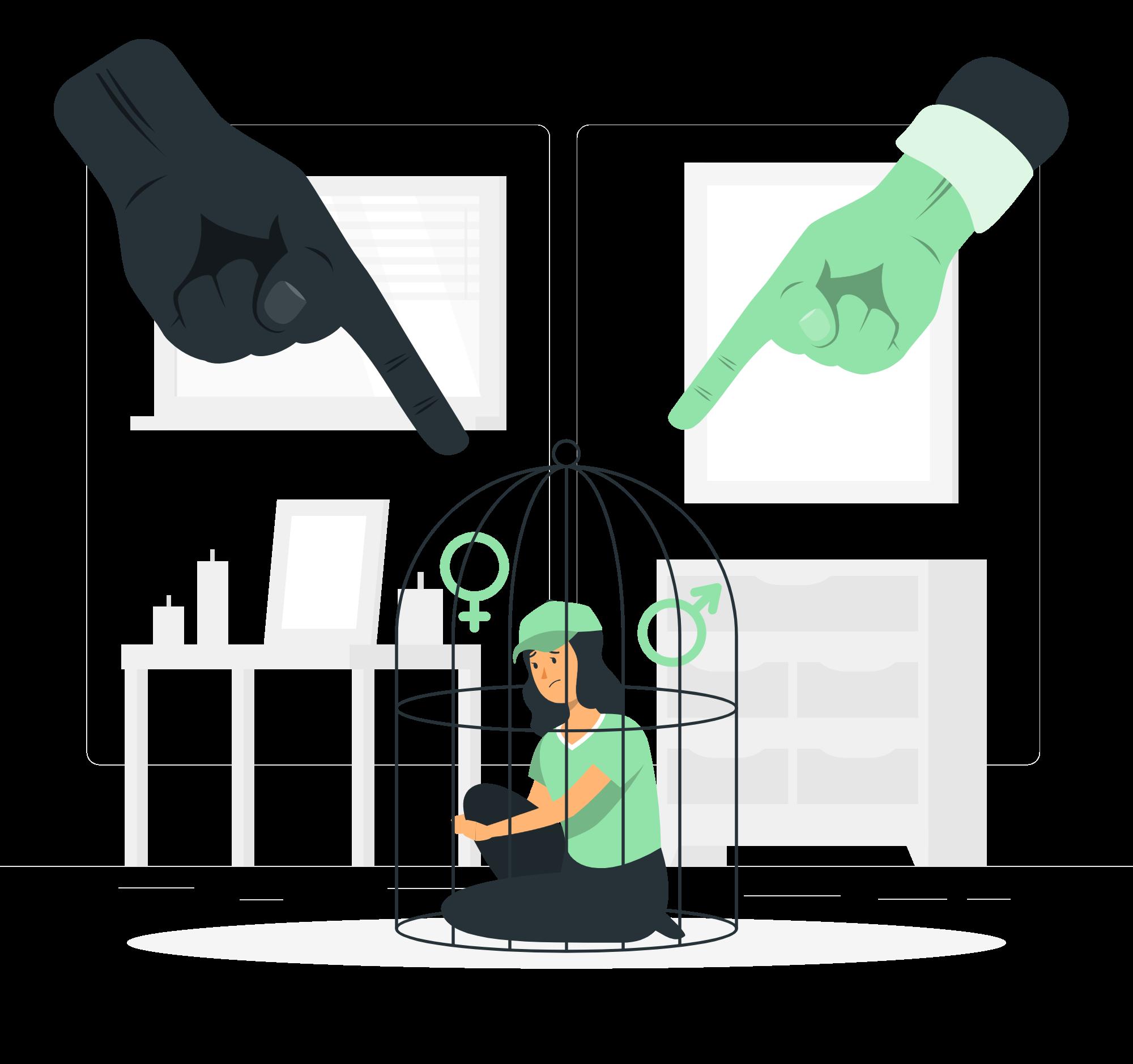




Dear Readers,
On this Women’s Entrepreneurship Day, we at Advocate Journal are thrilled to present our special edition dedicated to the stories, achievements, and relentless spirit of women entrepreneurs. This issue is more than a celebration—it’s an acknowledgment of the unique challenges women face in business and a call to action to support their continued growth.
As we know, the road to success is often paved with challenges, and for women, these can sometimes be compounded by social expectations, access barriers, and limited resources. Our special Women’s Edition aims to address these realities by providing valuable insights and practical advice to help women entrepreneurs thrive. In these pages, you’ll find features on securing funding, strategies for scaling a business, and expert commentary on navigating the intricacies of leadership.
We also delve into the critical topics of financial literacy, legal rights, and policy changes impacting women in the workplace. It’s essential for every woman entrepreneur to have a strong foundation of knowledge to protect and empower her path forward. By sharing these resources, we hope to offer not only inspiration but actionable tools for growth.
At Advocate Journal, our commitment to supporting women in business goes beyond this special issue. We are here to amplify voices, foster a community of resilient, driven women, and advocate for a world where gender equality in entrepreneurship is the standard, not the exception.
Thank you for your courage, vision, and perseverance. As we celebrate today, may this issue serve as a reminder that your journey matters and that we’re here to support you every step of the way.
Gaurav Kundu & CB Yadav Partners, Nyaya Shastra Legal Legal Board, Advocate Journal
Empowered women empower the world. Together, let’s build a future where every woman’s potential is realised “
Dear Readers,
Happy Women’s Entrepreneurship Day! Today, we honour the remarkable journeys and enduring impact of women entrepreneurs. At Advocate Journal, it’s our privilege to celebrate women who have transformed their dreams into successful ventures, often while overcoming unique challenges. This special issue is dedicated to shining a light on these journeys and offering resources for continued growth.
Within these pages, you’ll find stories of resilience and advice on everything from securing funding to building strong support networks. Our mission is to provide practical guidance for women at all stages of entrepreneurship, knowing that each journey is unique. We’ve also included insights on workplace rights and essential resources for navigating the business landscape confidently and safely.
Empowerment starts with knowledge, and by understanding your rights and resources, you’re setting the foundation for sustainable success. We hope this issue provides you with inspiration, tools, and encouragement to keep pushing forward. Thank you for letting us be part of your journey. Together, we’re creating a brighter future for women in business.
Nisha Lamba, Advisory Educator, Advocate Journal
Empowerment begins with knowledge, and every step you take as an entrepreneur builds the foundation for a brighter, more inclusive future
Together, we celebrate the resilience of women entrepreneurs and strive to create a future where their visions lead and their voices thrive
Dear Readers,
On this Women’s Entrepreneurship Day, I am excited to introduce Advocate Journal’s special edition celebrating the strength, vision, and resilience of women entrepreneurs. This issue is all about uplifting the voices of women in business, providing insights on tackling challenges, and sharing valuable resources for growth.
We know the road to success isn’t always easy, especially for women facing unique barriers in entrepreneurship. That’s why we’ve focused on topics like funding access, workplace rights, and the power of networking. Each story in this issue is meant to inspire and equip you with tools to navigate the evolving business world with confidence.a
At Advocate Journal, our commitment to women in business goes beyond this issue. We are here to celebrate your victories, support your challenges, and help shape a future where women-led businesses flourish. Thank you for being a part of this movement. Here’s to building, growing, and succeeding together.
Surbhi Arora, Managing Editor, Advocate Journal


PERSISTENT CHALLENGES
Despite significant strides in gender equality, the gender pay gap continues to be a pressing issue for women across various industries worldwide, including in India. The issue remains complex, deeply rooted in socio-economic norms, organizational practices, and unconscious biases.
20 WORKPLACE RIGHTS EVERY INDIAN WOMAN SHOULD KNOW
In today’s rapidly evolving professional landscape, the empowerment of women in the workplace has become a cornerstone of progress. However, true empowerment begins with awareness. Understanding workplace rights is not only essential for individual confidence and security.

ADDRESSING THE UNIQUE CHALLENGES OF WOMEN OF COLOUR
In today’s evolving work environment, the emphasis on workplace equality, diversity, and inclusion is undeniable. However, to ensure that true progress is made, it is essential to examine the intersectionality of identities
WOMEN MENTORSHIP
NAVIGATING WORK-LIFE BALANCE: REAL SOLUTIONS FOR WORKING WOMEN
In today’s fast-paced world, the concept of work-life balance is one that many working women find challenging to achieve.
Allison Helsinger joined Moore Ingram Johnson & Steele in 2014 and currently serves as a partner in the firm’s Lexington, Kentucky office. Practicing primarily in Workers’ Compensation Defense and Insurance Defense, Helsinger is a member of the firm’s Civil Litigation department. She is a top-rated attorney practicing in the Lexington, Kentucky area. Providing legal representation in Kentucky for a variety of different issues, Helsinger was selected to Rising Stars for 2019 through 2021.
INTRODUCTION TO THE TOP WOMEN LEADERS IN LAW FOR 2024
Women’s Entrepreneurship Day, celebrated annually on November 19th, is a global movement dedicated to recognizing and empowering women entrepreneurs.
THE TOP WOMEN LEADERS IN LAW FOR 2024
As a founding Partner of Napoli Shkolnik PLLC, Napoli plays an integral role in achieving the multi-million-dollar verdicts and settlements in the firm’s many practice areas,.
LEGAL TIPS
LEGAL TIPS FOR WOMEN IN INDIA: EMPOWERING YOUR RIGHTS
Understanding your legal rights is crucial for women to safeguard their personal and professional lives in India. India has a robust legal framework offering protection, but it’s essential for women to be aware of their entitlements.

We have a list of 20 workplace rights that every woman should show


In today’s rapidly evolving professional landscape, the empowerment of women in the workplace has become a cornerstone of progress. However, true empowerment begins with awareness. Understanding workplace rights is not only essential for individual confidence and security but also for fostering environments where equality and respect are the norms. India’s legal framework offers an extensive array of rights and protections designed to ensure that women can thrive professionally without fear or discrimination.
From the right to equal pay and protection against workplace harassment to maternity benefits and safety measures during night shifts, these laws aim to create a supportive and inclusive professional ecosystem. They reflect the collective acknowledgment of the challenges women often face and the steps needed to address them. Despite these protections, many women remain unaware of the rights available to them, leaving them vulnerable to workplace injustices.
By becoming informed about these rights and actively advocating for their enforcement, women can contribute to shaping workplaces that respect diversity, ensure fairness, and support professional growth. These rights are not just legal provisions but tools for empowerment, enabling women to break barriers and set new benchmarks in their careers while inspiring systemic change across industries.

Legal Reference: Equal Remuneration Act, 1976
Article: Section 4(1)
Equal pay is a fundamental right, ensuring fairness and recognition for women’s contributions in the workplace.
The principle of “equal pay for equal work” is enshrined in the Equal Remuneration Act, 1976, which mandates that men and women must receive equal wages for the same work. This ensures that no gender-based discrimination occurs when it comes to salary, wages, or allowances.
What You Should Know: Women should be compensated fairly for the same responsibilities and tasks as their male counterparts. If you are doing the same job and are paid less, you can take action by raising the issue with your HR department, or approach the labor commission or relevant authorities. Your employer is legally obligated to pay equal wages, and if they fail to do so, they can be fined under this Act.
Actionable Steps: Request salary transparency from your employer. If you suspect pay disparity, gather evidence, compare job roles, and raise a complaint either internally or with the local labor office. The law ensures that wage discrimination cannot be justified on the grounds of gender, and an employer failing to adhere to this law may face legal action.
Women must be proactive about their rights and ensure their pay is comparable to others in their role. There are also provisions for equal work conditions, including hours and the provision of the same benefits. Equal remuneration, therefore, isn’t just about equal pay; it also involves creating an environment that supports equal treatment for women in all aspects of their employment.
Legal Reference: Sexual Harassment of Women at Workplace (Prevention, Prohibition and Redressal) Act, 2013
Article: Section 3

The Sexual Harassment of Women at Workplace (Prevention, Prohibition and Redressal) Act, 2013 is a landmark law that aims to protect women from sexual harassment at the workplace. It mandates every workplace to establish a Committee to address complaints of sexual
harassment and create a safe environment for women employees.
What You Should Know: Sexual harassment includes unwelcome physical contact, sexually suggestive remarks, or any form of behavior that creates an intimidating, hostile, or offensive work
environment. The law applies to all workplaces, whether organized or unorganized, public or private.
Actionable Steps: If you face any form of sexual harassment, it’s important to report it immediately to your Internal Complaints Committee (ICC), which is required by law to handle such issues confidentially and effectively. If your workplace doesn’t have an ICC, you can escalate your complaint to local authorities. Women are also entitled to safe working conditions, which include training to prevent harassment and clear protocols for addressing complaints.
The Act ensures that employers provide a clear grievance redressal mechanism for victims and take swift and necessary actions. Employers are required to take preventive measures, and failure to adhere to these guidelines can lead to penalties for the organization.
“
Every woman deserves a workplace where she feels safe, respected, and valued. The fight against sexual harassment isn’t just about compliance with the law—it’s about fostering an environment of dignity, equality, and empowerment for all women.
Legal Reference: Maternity Benefit Act, 1961 (Amended in 2017)
Article: Section 5, Section 6
Under the Maternity Benefit Act, 1961, women employees are entitled to maternity leave, paid benefits, and additional protections during pregnancy and childbirth. The Act ensures women can take leave without the fear of losing their jobs or facing discrimination upon returning.
What You Should Know: The Act guarantees up to 26 weeks of paid maternity leave for women employed in establishments with 10 or more employees. Additionally, women with two or more children are entitled to 12 weeks of leave. Employers are prohibited from dismissing or demoting a woman during her maternity leave.
Actionable Steps: Inform your employer about your pregnancy in advance to ensure your maternity leave is processed smoothly. Request clarity on the leave policy, and understand your rights to return to work post-maternity. If you are not provided the full benefits, you can approach the labor department or file a complaint with the labor court.
Employers must ensure women are not discriminated against for taking maternity leave, and women are entitled to job security after returning. This law also ensures that the woman’s health and wellbeing are prioritized during pregnancy, making it a critical right for working women.

Maternity leave is a fundamental right, ensuring women’s health, job security, and dignity during and after pregnancy “

Legal Reference: The Factories Act, 1948
Article: Section 11, Section 19
The Factories Act, 1948 mandates that every factory or workplace must provide a safe and healthy working environment. This includes provisions for clean facilities, the protection of workers from hazardous conditions, and adequate safety measures to ensure the physical and mental well-being of women employees.
What You Should Know: Women working in environments with machinery or hazardous substances are entitled to safety measures such as protective equipment, hazard-free working conditions, and safe transportation. Employers must ensure that the workplace is free from any physical harm or health risks.
Actionable Steps: Ensure that your workplace complies with the basic safety standards. If you are working in a hazardous environment, you have the right to request appropriate safety equipment and working conditions. Women should also be aware of the working hours, especially when night shifts are involved. The law restricts the employment of women in certain hazardous or dangerous tasks.
If you feel that your workplace is unsafe or violates these safety standards, report the matter to your employer or local authorities. Women should demand safe conditions, and the law ensures that no employer can ignore these requirements.
A safe and healthy workplace is a fundamental right for every woman. Employers must ensure that working conditions protect women from harm, whether physical, mental, or environmental. It’s not just a legal obligation—it’s essential for empowering women to thrive and succeed without risk or fear of injury

Equal opportunities in employment, promotions, and training are fundamental rights for every woman. Gender bias has no place in the workplace, and women must be empowered to achieve their full career potential without discrimination
Legal Reference: Maternity Benefit Act, 1961 (Amended in 2017)
Article: Section 5, Section 6
The Equal Remuneration Act, 1976 provides that women are entitled to equal opportunities in employment, promotions, and training opportunities. The law mandates that employers must ensure gender equality in the hiring process and provide equal access to career development.
What You Should Know: Women should be given the same opportunities as men to apply for positions,
be trained for skill enhancement, and be considered for promotions. Discriminatory practices, whether in hiring or career progression, are illegal and must be challenged.
Actionable Steps: If you find yourself overlooked for training, promotion, or new opportunities solely due to your gender, you should raise this with HR. Make sure to document any instances of gender bias in promotions or hiring and file a complaint if necessary.
Women should assert their right to equal career progression opportunities in the workplace.
The law ensures that discrimination based on gender is not tolerated, and women have the right to build their careers just as their male counterparts. Legal recourse is available to women who experience barriers to their professional growth due to gender bias.
Workplace flexibility is essential for women to thrive both professionally and personally, ensuring they can balance career ambitions with family responsibilities without compromise
Legal Reference: The Maternity Benefit (Amendment) Act, 2017
Article: Section 9

Workplace flexibility is a crucial right that allows women to manage both professional responsibilities and family obligations, particularly after childbirth. Under the Maternity Benefit Act (Amendment) 2017, women are entitled to flexible working hours or the option to work from home.
What You Should Know: The law recognizes the importance of work-life balance and permits adjustments in working hours or location for women who are returning from maternity leave. This is particularly useful for new mothers who need to balance childcare with work responsibilities.
Actionable Steps: If you are returning to work after maternity leave and require flexibility, such as part-time work, work-from-home options, or adjusted hours, communicate these needs with your employer in advance. Your employer is legally obligated to accommodate such requests where feasible. If your employer refuses, you have the right to seek legal action.
Women should not feel pressured to choose between their family and career, and this law ensures that they have the flexibility needed to continue their professional growth while managing fmily responsibilities.
Legal Reference: Maternity Benefit (Amendment) Act, 2017
Article: Section 5(5)
The Maternity Benefit (Amendment) Act, 2017 ensures that women who become mothers through surrogacy also have the right to maternity benefits, including paid leave and health benefits. This law extends the protections given to biological mothers to those who become mothers through surrogacy arrangements.
What You Should Know: Surrogacy mothers are entitled to 26 weeks of paid maternity leave just like biological mothers. The law recognizes surrogacy as a valid form of motherhood and ensures that women who choose this route are not disadvantaged in their workplace.
Actionable Steps: If you are a surrogate mother, make sure to inform your employer about your surrogacy and request the maternity leave as per the law. Employers should offer the same support and benefits to surrogate mothers as they do to biological mothers. If your workplace fails to comply with this law, you can approach the labor commission or file a grievance.
This law strengthens the rights of women who choose alternative motherhood paths, ensuring they are not discriminated against for their choices and providing them with necessary health and financial support during the maternity period.
Motherhood comes in many forms, and every woman, whether through biological means or surrogacy, deserves the same rights and protections. The Maternity Benefit (Amendment) Act, 2017 ensures that surrogate mothers are not left behind, granting them the same maternity benefits as biological mothers, so they can fully embrace this life-changing experience without sacrificing their professional or financial security


Legal Reference: The Employees’ State Insurance Act, 1948
Article: Section 56
Under the Employees’ State Insurance Act, 1948, workers are entitled to paid sick leave, including medical leave for women who may require treatment for specific gender-related health issues like pregnancy, miscarriage, or other medical conditions.
What You Should Know: Women are entitled to paid sick leave for medical conditions related to pregnancy, menstrual problems, and other health conditions. In case of extended illness or medical procedures, the law ensures that women can take leave without the fear of losing their jobs or income.
Actionable Steps: If you need to take medical leave, inform your employer in advance, and ensure you have a medical certificate or relevant documentation. It’s crucial to know that your employer is obligated to grant paid sick leave if you are covered under the Employees’ State Insurance (ESI) scheme.
Employers are prohibited from terminating a woman’s employment during her illness, ensuring that women can take the time they need for recovery without fearing job loss.
Women’s health is a priority, and the law ensures that they have the right to paid sick leave for gender specific health conditions, enabling them to recover without the fear of losing their livelihood “
Legal Reference: The Equal Remuneration Act, 1976
Article: Section 4(2)
The Equal Remuneration Act, 1976 protects women from being discriminated against during hiring or promotion processes. It mandates that women should not face discrimination based on gender, either in salary or job responsibilities, during the hiring process.
What You Should Know: Employers cannot advertise job openings or hire candidates based on gender preference. Gender-neutral job descriptions must be followed, ensuring that women have equal access to all roles within an organization.
Actionable Steps: If you encounter gender bias during hiring, such as gender-specific job advertisements or unequal salary offers, you have the right to file a complaint with the labor commissioner or human rights commission. Document instances of gender bias and present them when taking your complaint forward.
Employers must create a fair, gender-neutral hiring process to ensure women are not excluded or underpaid simply because of their gender.
Gender equality in hiring is a right, not a privilege—employers must ensure equal opportunities and fair compensation for all, regardless of gender “

The Maternity Benefit Act, 1961 ensures job security for women during pregnancy and maternity leave. Employers are prohibited from dismissing or retrenching women due to pregnancy, allowing them to take leave without fear of losing their job or career opportunities
Legal Reference: Maternity Benefit Act, 1961
Article: Section 12

The Maternity Benefit Act, 1961 ensures that women cannot be retrenched, dismissed, or terminated from their employment due to their pregnancy or maternity leave. Employers must comply with these protections to guarantee job security for expecting mothers.
What You Should Know: No woman can be laid off from her job or retrenched during her pregnancy or while on maternity leave. Women have the right to return to the same job after maternity leave.
Actionable Steps: If you face retrenchment during or after maternity leave, document all communication regarding your dismissal. You can file a complaint with the labor office or court. Employers who violate this provision can face penalties under the law.
Women can confidently take their maternity leave knowing that the law protects their job security during this crucial time.
Legal Reference: Sexual Harassment of Women at Workplace (Prevention, Prohibition, and Redressal) Act, 2013
Article: Section 4(1)

The Sexual Harassment of Women at Workplace Act, 2013 requires employers to provide awareness and training programs regarding sexual harassment prevention at the workplace. This is a mandatory obligation for all employers to educate employees about their rights.
What You Should Know: Employers must conduct training sessions to raise awareness about what constitutes sexual harassment and how employees can protect themselves. Women should actively participate in these programs to understand their rights and the procedures for reporting harassment.
Actionable Steps: If your organization fails to provide this training, request it from HR. The law mandates that training programs should be provided to all employees, so employers are legally bound to arrange these sessions.
Taking part in these programs empowers women to confidently identify and address harassment issues early on.
The Sexual Harassment of Women at Workplace Act, 2013 mandates employers to conduct training programs to raise awareness about sexual harassment, empowering women with knowledge of their rights and the proper procedures for reporting harassment “
Legal Reference: The Factories Act, 1948
Article: Section 66

The Factories Act, 1948 protects women from being employed in night shifts or dangerous work hours, ensuring their safety and well-being. Certain sectors or industries may not employ women during night hours unless adequate safety measures are in place.
What You Should Know: Women are generally prohibited from working night shifts in factories and establishments, particularly in hazardous or unsafe conditions. Employers must ensure the safety of women workers during late hours.
Actionable Steps: If you work in a sector that requires night shifts, ensure that proper safety measures are in place, including secure transportation, surveillance, and facilities. If your employer doesn’t comply with these regulations, raise the issue with the concerned authorities
The Factories Act, 1948 ensures women’s safety by restricting night shifts and hazardous work hours, requiring employers to implement safety measures if such shifts are necessary
Legal Reference: The Industrial Employment (Standing Orders) Act, 1946
Article: Section 14
Under the Industrial Employment (Standing Orders) Act, 1946, every woman employee is entitled to paid leave for personal reasons, sickness, or emergency situations. This law ensures that women can maintain their employment status without the loss of income.
What You Should Know: Employers are required to provide women employees with paid leave days, whether it’s for personal health reasons, family matters, or emergencies.
Actionable Steps: Check your company’s leave policy to ensure you are receiving your full entitlement. If your employer denies paid leave or asks you to take unpaid leave unnecessarily, you can raise the issue with the HR department or file a complaint with labor authorities.
The Industrial Employment (Standing Orders) Act, 1946 ensures that every woman employee is entitled to paid leave for personal, health, or emergency reasons, safeguarding her income and job security
Paid Leave for Women Under the Industrial Employment (Standing Orders) Act, 1946
• Paid Leave Entitlement: The Act mandates that employers provide paid leave for women employees for personal reasons, sickness, or emergencies, ensuring they maintain income and job security.
• Leave Policy Compliance: Employers must adhere to leave policies, offering paid leave for health-related or emergency situations without penalizing employees.
• Actionable Steps: Review your company’s leave policy to ensure you're receiving the full paid leave entitlement.


The Minimum Wages Act, 1948 ensures that no woman worker is paid below the minimum wage, which is determined by the state government. This applies to both skilled and unskilled laborers, including women employed in factories, shops, and other establishments.
What You Should Know: Women are entitled to the minimum wage set by the state. Employers cannot force employees to work for less than the prescribed wages, and they must ensure that women workers are paid fairly for their labor.
Actionable Steps: If you suspect your pay is below the minimum wage, compare your pay with the prescribed minimum wage for your state. If it’s lower, report the issue to the labor department or file a complaint.
Legal Reference: The Minimum Wages Act, 1948
Article: Section 4
The Minimum Wages Act, 1948 ensures that women workers are paid at least the minimum wage prescribed by the state government for their labor, whether skilled or unskilled. Employers are legally obligated to ensure fair compensation for their employees and cannot pay below the prescribed wage, safeguarding women from exploitation in the workplace

Legal Reference: The Equal Remuneration Act, 1976
Article: Section 4
The Equal Remuneration Act, 1976 provides that women are entitled to equal opportunities in employment, promotions, and training opportunities. The law mandates that employers must ensure gender equality in the hiring process and provide equal access to career development.
What You Should Know: Women should be given the same opportunities as men to apply for positions,
be trained for skill enhancement, and be considered for promotions. Discriminatory practices, whether in hiring or career progression, are illegal and must be challenged.
Actionable Steps: If you find yourself overlooked for training, promotion, or new opportunities solely due to your gender, you should raise this with HR. Make sure to document any instances of gender bias in promotions or hiring and file a complaint if necessary.
“
The Equal Remuneration Act, 1976 ensures that women have equal access to job opportunities, training, and promotions, mandating that employers eliminate gender-based discrimination. Women are entitled to the same career development prospects as their male counterparts, and any bias in hiring or promotions can be legally challenged
Women should assert their right to equal career progression opportunities in the workplace.
The law ensures that discrimination based on gender is not tolerated, and women have the right to build their careers just as their male counterparts. Legal recourse is available to women who experience barriers to their professional growth due to gender bias.
Legal Reference: The Bonded Labor System (Abolition) Act, 1976
Article: Section 16
The Bonded Labor System (Abolition) Act, 1976 ensures the abolition of forced or bonded labor and provides a legal framework to protect women from being forced into exploitative and coercive work situations. This law is crucial in combating modern-day slavery.
What You Should Know: Women, like men, are prohibited from being forced into labor under any circumstances. The law makes it illegal for employers to hold workers against their will or demand them to work without proper compensation.
Actionable Steps: If you are being forced to work against your will, it is important to seek legal assistance. You can approach the local labor authorities or NGOs working on labor rights. Awareness of this law empowers women to take a stand against forced labor.

Here are shorter quotes for the Bonded Labor System (Abolition) Act, 1976:
• The Bonded Labor System (Abolition) Act, 1976, frees workers, including women, from forced labor, ensuring that no one is coerced into exploitative work conditions.
• This law is essential in ending modern-day slavery and empowers workers to fight against unfair and unsafe working practices.
• Bonded labor is illegal under this Act, which provides workers with the legal framework to challenge forced work and demand compensation.
The Bonded Labor System (Abolition) Act, 1976 guarantees women freedom from forced or exploitative labor, ensuring they are not coerced into working under duress or without proper compensation
Legal Reference: The Sexual Harassment of Women at Workplace (Prevention, Prohibition, and Redressal) Act, 2013
Article: Section 17
The Sexual Harassment of Women at Workplace Act, 2013 ensures that women who file complaints of harassment at work are protected from retaliation or discrimination by their employers or colleagues. This includes ensuring that no adverse actions are taken against them after they report harassment.
What You Should Know: Women employees have the right to file complaints of sexual harassment without the fear of facing retaliation. The law safeguards women from any form of victimization, such as being fired, demoted, or denied promotions for making such complaints.
Actionable Steps: If you face retaliation after filing a sexual harassment complaint, report the matter to the Internal Complaints Committee (ICC) or take it to the labor commission. The law ensures that such retaliation is unlawful and can result in penalties for the employer.
This law guarantees that women can assert their rights without fear of negative consequences, promoting a safer and more supportive work environment.
The Sexual Harassment of Women at Workplace Act, 2013, ensures that women who report harassment are protected from retaliation, safeguarding their right to speak up without fear of discrimination or adverse actions “


Legal Reference: The Factories Act, 1948
Article: Section 7A
Under the Factories Act, 1948, employers are required to ensure the health, safety, and welfare of their employees at the workplace. Women, like all workers, are entitled to work in an environment that is free from physical hazards, toxic materials, and unsafe conditions.
What You Should Know: The workplace must be free from health hazards, with proper sanitation, lighting, ventilation, and protective gear provided. Employers must also provide regular health check-ups and ensure that women are not exposed to any health risks.
Actionable Steps: If your workplace does not provide adequate safety measures or exposes you to unsafe conditions, you should report this to the labor department. You can also file a complaint to the local industrial safety officer to conduct an inspection.
This law ensures that employers are responsible for providing a safe and secure workplace environment for women workers.

The Factories Act, 1948 ensures that women work in environments that are free from health hazards, with proper sanitation, safety measures, and protective gear, empowering them to work without risk to their well-being
Legal Reference: The Shops and Establishments Act, 1953
Article: Section 4(2)
The Shops and Establishments Act, 1953 regulates working hours, including restrictions on late working hours for women. It aims to protect women from being overworked or forced into unsafe late-night shifts, ensuring they work under humane conditions.
What You Should Know: Women are prohibited from working late-night shifts unless there are adequate safety measures in place, including transportation to and from the workplace. Employers are also prohibited from making women work excessively long hours without rest.
Actionable Steps: If you are made to work excessive hours or are asked to work night shifts without proper safety protocols, you should address the issue with your HR department. If the problem persists, you can report it to the labor authorities.
This law promotes work-life balance for women and safeguards their well-being against exploitative practices in the workplace.

The Shops and
Establishments
Act, 1953 ensures that women are not forced into late-night shifts without proper safety measures like transportation, promoting their well-being and work-life balance “
The Maternity Benefit Act, 1961 ensures that women cannot be retrenched, dismissed, or terminated from their employment due to pregnancy or maternity leave. Women are entitled to return to the same position after their maternity leave, ensuring their job security during this critical period
Legal Reference: The Equal Remuneration Act, 1976
Article: Section 4

The Maternity Benefit Act, 1961 ensures that women cannot be retrenched, dismissed, or terminated from their employment due to their pregnancy or maternity leave. Employers must comply with these protections to guarantee job security for expecting mothers.
What You Should Know: No woman can be laid off from her job or retrenched during her pregnancy or while on maternity leave. Women have the right to return to the same job after maternity leave.
Actionable Steps: If you face retrenchment during or after maternity leave, document all communication regarding your dismissal. You can file a complaint with the labor office or court. Employers who violate this provision can face penalties under the law.
Women can confidently take their maternity leave knowing that the law protects their job security during this crucial time.
• Women are guaranteed job security during pregnancy and maternity leave under the Maternity Benefit Act, 1961, which prevents retrenchment or dismissal during this period.
• The Act ensures that women can return to the same position after maternity leave, maintaining their employment rights without fear of job loss



Special Report by Nyaya Shastra Legal Firm
Despite significant strides in gender equality, the gender pay gap continues to be a pressing issue for women across various indus-
tries worldwide, including in India. The issue remains complex, deeply rooted in socio-economic norms, organizational practices, and unconscious biases. Nyaya Shastra Legal Firm has closely analyzed this persistent challenge and taken active steps to address it. The firm has handled multiple cases where wom-
en have faced pay disparities despite performing similar roles to their male counterparts. Through legal counsel and litigation, Nyaya Shastra has helped bring attention to these disparities, ensuring women receive equal pay for equal work under the Equal Remuneration Act, 1976.
Case Study: One notable case involved a tech firm where a female employee was paid significantly less than her male colleagues for doing the same work. Nyaya Shastra’s legal team not only ensured the employee received her due compensation but also worked with the company to implement transparent salary structures and anti-discrimination policies.
Through their efforts, Nyaya Shastra helped the company establish a more inclusive pay scale, benefiting both men and women. The case had a ripple effect, inspiring other organizations to re-evaluate their pay structures and adopt gender-neutral compensation policies.
Impact: Nyaya Shastra’s intervention has contributed to the growing momentum for closing the gender pay gap in India. Their work emphasizes the importance of legal awareness, advocacy, and corporate responsibility. However, despite progress, there is still a long way to go in eradicating the gender pay gap, with cultural and systemic barriers that need to be overcome.


Workplace harassment remains one of the most common yet underreported challenges women face in professional environments. Nyaya Shastra Legal Firm has been at the forefront of advocating for women’s rights in this domain, providing legal assistance and consulting to victims of sexual harassment at the workplace.
The Sexual Harassment of Women at Workplace (Prevention, Prohibition, and Redressal) Act, 2013 has been a significant legislative tool in this effort, but its implementation and enforcement remain inconsistent. Nyaya Shastra has represented numerous women in cases of harassment, helping them navigate the legal complexities involved in filing complaints and seeking redress.
Case Study: In one high-profile case, a senior female executive at a multinational company was sexually harassed by her supervisor. Nyaya Shastra provided legal counsel and helped her file a complaint with the Internal Complaints Committee (ICC) of the company. As a result, the accused was terminated, and the company strengthened its workplace harassment policies, offering mandatory training sessions to all employees on maintaining a harassment-free workplace.
Impact: Nyaya Shastra’s legal expertise has empowered women to seek justice, and their advocacy has led to significant policy changes in companies. They have also worked with corporations to build more robust systems for preventing workplace harassment, ensuring a safer environment for all employees. However, despite these efforts, workplace harassment remains widespread, highlighting the need for greater awareness, better implementation of laws, and stronger support systems for women.

In an effort to make legal assistance more accessible to women across the country, Nyaya Shastra Legal Firm has launched an innovative project—Legal Lens, a 24x7 chatbot designed to provide immediate legal consultation to women. This AI-powered tool is equipped to assist women with a range of legal issues, from workplace harassment and gender pay disparity to domestic violence and family law concerns.
Legal Lens provides quick, reliable information, helps users understand their rights, and can escalate critical cases to local lawyers in the user’s region. By offering a confidential and easy-to-use platform, Legal Lens aims to bridge the gap between women and the legal resources they need.
How It Helps: Legal Lens provides a space where women can express their legal concerns without fear of judgment or intimidation. The chatbot’s ability to instantly connect users to lawyers, especially in rural or underserved areas, ensures that women everywhere have access to the legal assistance they deserve.
Moreover, the chatbot is designed to offer support in various regional languages, enhancing its accessibility across India. By escalating complex cases to lawyers in

Over 70% of India’s population resides in rural areas, where access to legal services is limited. Legal Lens bridges this gap by connecting women to local legal assistance instantly, helping address this critical need for underserved regions.

According to India’s National Crime Records Bureau, there were over 400,000 reported cases of crimes against women in 2021, with domestic violence making up a significant portion. Legal Lens provides immediate information and assistance in domestic violence cases, potentially increasing access to timely help for victims.

India has 22 officially recognized languages and hundreds of dialects. By offering support in multiple regional languages, Legal Lens aims to serve a more significant portion of the population and overcome language barriers that often prevent women from seeking legal help.
real-time, the project aims to ensure timely interventions and personalized legal support for women in need.
Impact: Nyaya Shastra’s Legal Lens project has already started assisting women in remote locations who previously had limited access to legal support. This innovation is paving the way for more inclusive and efficient legal services, empowering women to take charge of their legal rights and seek justice on their terms.

Nyaya Shastra Legal Firm’s unwavering commitment to closing the gender pay gap and addressing workplace harassment has made a significant impact in creating safer, fairer workplaces for women. With their continued advocacy and innovative solutions like Legal Lens, Nyaya Shastra is paving the way for a future where women can work with dignity, free from discrimination and harassment.
As they continue to empower women with legal knowledge and support, Nyaya Shastra’s role in the legal landscape remains vital in shaping a more just and equal society.

In today’s evolving work environment, the emphasis on workplace equality, diversity, and inclusion is undeniable. However, to ensure that true progress is made, it is essential to examine the intersectionality of identities, particularly the specific challenges that women of colour face in professional spaces. The concept of intersectionality, introduced by Professor Kimberlé Crenshaw, highlights how various social identities—such as gender, race, class, and sexuality—intersect to create unique experiences of discrimination and privilege. This
perspective is vital in understanding the experiences of women of colour in the workplace, where the convergence of gender and race can create compounded challenges.
Intersectionality theory asserts that discrimination and privilege do not operate in isolation. Instead, individuals experience these forces based on the intersection of multiple identities. For example, a woman of colour may experience both
racial and gender bias in the workplace, facing obstacles that are not only based on her gender but also on her race. In this context, a focus solely on gender or race without considering how these factors intertwine would fail to fully address the unique challenges women of colour face.
Workplaces are often structured to accommodate the experiences of a homogenous group, typically white, cisgender, and male. Women of colour, however, must navigate these systems with the additional layers of their race, ethnicity,

and often their immigrant status. This dynamic shapes their interactions with power structures and presents unique obstacles, such as limited access to leadership roles, lower wages, and fewer opportunities for career advancement. The concept of intersectionality allows us to better understand these dynamics and work towards creating more inclusive workplaces.
The Double Bind: Navigating Gender and Racial Stereotypes
Women of colour often find themselves in a “double bind”—a situa-
tion where societal expectations force them into an impossible position. Gender stereotypes dictate that women should be nurturing and accommodating, while racial stereotypes often depict women of colour as aggressive or domineering when they assert leadership qualities. Women of colour are expected to balance these opposing traits, often facing criticism no matter how they behave. If they assert themselves in the same way that their white counterparts might, they risk being labeled as “too aggressive” or “unapproachable.” If they adopt more passive or nur-
turing traits, they may be seen as weak or incapable of leadership.
This double bind places immense pressure on women of colour, forcing them to constantly adjust their behavior to fit into narrow expectations. The fear of being judged harshly for their actions or being denied opportunities based on stereotypes can significantly hinder their professional growth. It’s critical that organizations address these biases and create environments where women of colour can express themselves authentically without facing discrimination.
Microaggressions are subtle, often unconscious actions or comments that marginalize individuals based on their race or gender. These microaggressions can be incredibly damaging, creating a hostile and isolating environment for women of colour. Examples include being passed over in meetings, having ideas ignored or credited to others, or receiving backhanded compliments that question their competence.
These small but significant daily challenges can accumulate over time, eroding a woman’s sense of belonging and confidence in the workplace. Microaggressions can create a toxic work environment, one that discourages women of colour from expressing themselves or pursuing leadership roles. Research indicates that microaggressions have a profound psychological impact, contributing to burnout, lower job satisfaction, and even higher rates of anxiety and depression among women of colour.
For organizations to foster a truly inclusive workplace, they must actively work to recognize and eliminate microaggressions. This involves training staff on the impact of their words and actions, encouraging self-awareness, and implementing strategies to support marginalized groups. Companies should also provide clear channels for reporting incidents of bias and discrimination and take proactive steps to address them.
Systemic inequalities are deeply embedded in the structures of many organizations, perpetuating the disparities that women of
colour face in terms of career advancement, pay equity, and leadership opportunities. Numerous studies reveal that women of colour are underrepresented in senior leadership roles, particularly in industries like finance, technology, and corporate law. For instance, a 2020 report from LeanIn.Org and McKinsey & Company found that women of colour occupy a fraction of executive positions in S&P 500 companies compared to their white counterparts.

“ True workplace inclusion means breaking biases, amplifying voices, and creating spaces where women of colour can thrive without barriers.
The lack of diversity in leadership roles is often tied to unconscious bias during hiring and promotion processes, where women of colour are frequently overlooked for top positions in favor of others who fit a more conventional mold. This systemic inequality is compounded by a lack of mentorship opportunities, insufficient access to influential networks, and sometimes a workplace culture that does not fully value or understand the experiences of women of colour.
To address these systemic issues, organizations must prioritize diversity in their leadership pipelines, implement mentorship and sponsorship programs, and create transparent, merit-based promotion practices. By actively dismantling these barriers, organizations can help to level the playing field for women of colour, giving them the opportunities they deserve to succeed and thrive.
Recognizing and addressing unconscious biases is one of the most important steps in fostering an inclusive workplace. Unconscious bias refers to the automatic judgments or stereotypes that influence how individuals perceive others, often without being aware of it. In the context of workplace equality, unconscious biases can influence hiring decisions, performance reviews, and even everyday interactions with colleagues. By implementing bias training, organizations can help their employees become more aware of these biases and learn to recognize when they may be acting unfairly.
In addition to training, organizations should also implement policies and practices that prioritize equity. This includes revising hiring,
promotion, and evaluation procedures to ensure they are free from bias, offering flexible work arrangements to accommodate caregiving responsibilities, and ensuring that employees from marginalized groups have access to the same resources and opportunities as their peers. Furthermore, organizations should create spaces where women of colour feel empowered to share their experiences, voice their concerns, and contribute to the development of policies that impact their careers.
Creating an inclusive environment also involves building a culture of allyship. Allies—whether they are men, white women, or others— play an essential role in advocating for women of colour and challenging discriminatory practices. They
can use their influence to amplify marginalized voices, challenge stereotypes, and promote policies that promote equality for all employees.
To truly achieve workplace equality, it is essential to take an intersectional approach that recognizes and addresses the unique challenges faced by women of colour. By understanding that the intersection of race, gender, and other social identities shapes workplace experiences, organizations can create policies and practices that are not only inclusive but also actively support the growth and advancement of women of colour.
This approach goes beyond tokenism or surface-level diversity initiatives and involves a deep commitment to dismantling systems of oppression that exist in many workplaces. By adopting intersectionality as a guiding framework, we can create a work environment that recognizes and values the diverse contributions of all women, regardless of their race, gender, or background.
As we move forward, it is critical that we continue to challenge the biases and barriers that prevent women of colour from reaching their full potential. Only then can we build workplaces that are truly equitable, inclusive, and supportive of all employees, regardless of their intersecting identities.



In today’s fast-paced world, the concept of work-life balance is one that many working women find challenging to achieve. With the demands of a career, household responsibilities, and personal life, finding a harmonious balance can seem like an impossible task. Yet, work-life balance is essential not only for a woman’s physical and mental well-being but also for her overall productivity, job satisfaction, and career longevity.
While there is no one-size-fits-all solution, it is possible to find strategies that can help women better manage the competing demands of work and personal life. In this article, we will explore real solutions and practical tips for working women who are striving to achieve a better work-life balance.
1. Set Clear Boundaries
One of the most fundamental strategies for work-life balance is establishing clear boundaries between work and personal life. This may seem straightforward, but in a world where the boundaries between personal and professional responsibilities are increasingly blurred—especially with remote working—creating distinct boundaries can be difficult.
Solutions:
• Set specific working hours: Create a fixed schedule for work and stick to it as much as possible. Once the workday is over, turn off work-related notifications and emails to avoid the temptation of working late into the evening.
• Dedicated workspace: If you are working from home, set up a dedicated workspace that is separate from your personal space. This helps create a mental divide between work and leisure time.
• Communicate with your employer: Be clear with your employer about your availability and personal time. Discuss flexible work hours or work-from-home arrangements that align with your life and responsibilities.
2. Prioritize Tasks Effectively
Balancing work and life is often more about how we manage our time rather than trying to do everything. Learning how to prioritize tasks is a key skill for achieving balance. Not everything needs to be done at once, and some tasks may not need to be done at all.

Solutions:
• The Eisenhower Matrix: This decision-making tool helps categorize tasks based on their urgency and importance. Urgent and important tasks should be prioritized, while tasks that are neither urgent nor important can be delegated or eliminated.
• Plan ahead: Every Sunday, spend some time planning the week ahead. This allows you to assess both personal and professional responsibilities and create a realistic to-do list.
• Learn to delegate: Whether it’s at work or at home, delegating tasks is crucial. Trusting others to take on responsibilities can reduce stress and allow you to focus on what truly matters.
One of the biggest challenges working women face is the pressure to always say “yes”—whether it’s taking on an extra project at work or attending an event. While it’s important to be a team player, saying yes to everything can lead to burnout and overwhelm.
Solutions:
• Be selective: Evaluate each opportunity or request on its merit. Does it align with your goals? Does it contribute positively to your personal or professional life? If it doesn’t, it’s okay to say no.
• Set expectations early: Communicate your boundaries from the outset. Let colleagues and family members know what you can reasonably take on without compromising your own well-being.
• Use “no” as a tool for self-care: Saying no is not selfish—it’s a necessary practice to protect your time and energy.
Flexibility is a game-changer when it comes to achieving work-life balance. Flexibility in how, when, and where you work can help reduce stress and improve overall life satisfaction. In fact, studies have shown that women who have access to flexible work schedules are more likely to be satisfied with their jobs and have better overall health.
Solutions:
• Flexible work hours: Discuss flexible hours with your employer. If your job allows, adjust your hours to better fit your personal needs—whether that means working earlier or later in the day.
• Remote work options: Remote work, even part-time, can save time on commuting and allow you to spend more time with family or on personal pursuits.
• Use technology: Leverage productivity tools like project management apps or cloud-based file sharing to work efficiently and stay organized, whether you’re in the office or working from home.
Self-care is often the first thing that women neglect when trying to balance work and life. However, taking care of yourself physically, mentally, and emotionally is essential for being able to juggle multiple responsibilities.
Solutions:
• Exercise regularly: Physical activity is a powerful stress-reliever. Whether it’s yoga, walking, or a full workout session, make time for exercise, even if it’s just 20 minutes a day.
• Practice mindfulness: Stress management techniques such as meditation, deep breathing, or mindfulness can improve

mental clarity and reduce anxiety. Even just a few minutes each day can make a difference.
• Get enough sleep: Sleep is often sacrificed when juggling multiple responsibilities, but insufficient sleep can impair focus, memory, and overall health. Make sure to prioritize sleep and create a calming bedtime routine.
As women juggle both professional and personal responsibilities, sometimes the best solution is to outsource certain tasks. Whether it’s hiring help for household chores or seeking professional support for work projects, outsourcing can free up precious time and energy.
Solutions:
• Household help: If possible, consider hiring help for household chores such as cleaning, cooking, or childcare. Many women find that outsourcing these tasks gives them more time to focus on work and personal well-being.
• Professional support: At work, consider hiring virtual assistants or project managers to take on tasks that don’t require your direct involvement. This helps you focus on high-priority tasks and avoid burnout.
Having a strong support network is one of the most powerful tools for achieving work-life balance. Whether it’s a partner, family, friends, or colleagues, having people who understand and support your challenges can make a big difference.
Solutions:
• Open communication with your partner: Having a partner who shares responsibilities and understands the pressures you face can make balancing work and life much easier. Make time for open, honest conversations about shared duties and expectations.
• Mentorship and peer support: Seek out mentorship from other women who have successfully navigated work-life balance. Peer support groups, whether in person or online, can provide encouragement and practical advice.
Conclusion
Achieving work-life balance as a woman is a dynamic and evolving process. There is no one-size-fits-all solution, but by setting boundaries, prioritizing tasks, embracing flexibility, and taking care of oneself, women can create a more sustainable and fulfilling balance between their professional and personal lives. It’s important to remember that work-life balance doesn’t mean perfect harmony—it’s about making choices that support your well-being and happiness. By practicing self-care, learning to say no, and building a supportive network, working women can better navigate the complex terrain of modern life while maintaining their health, happiness, and career success.


Women’s Entrepreneurship Day, celebrated annually on November 19th, is a global movement dedicated to recognizing and empowering women entrepreneurs. This day highlights the remarkable contributions of women across various industries, and one sector where women have made significant strides in recent years is the legal profession. Traditionally dominated by men, the legal industry has seen a rise in women-led law firms that are breaking barriers, redefining legal practices, and making an undeniable mark on the global stage.
These women-led law firms are not only changing the face of the legal world, but they are also paving the way for future generations of women in law, entrepreneurship, and business leadership. As we commemorate Women’s Entrepreneurship Day 2024, it’s an opportune moment to celebrate these trailblazing

women who have overcome obstacles and leveraged their expertise to build successful, innovative law firms that are driving legal reform, advocating for social justice, and shaping the future of the industry.
The following listicle showcases ten standout women-led law firms that are making waves and setting a powerful example for aspiring women entrepreneurs everywhere. From handling high-profile corporate cases to fighting for underrepresented communities, these firms embody the spirit of resilience, leadership, and entrepreneurship. As we delve into each firm’s story, we’ll explore how these women are not only achieving personal success but also contributing to the advancement of women in the legal field. These firms offer inspiration to other women looking to break into industries that have historically been challenging to navigate.
In a landscape that is often shaped by longstanding traditions and gender imbalances, these women-led law firms serve as beacons of change. They remind us of the power of entrepreneurship in driving social change and the importance of championing diversity, equity, and inclusion. As we celebrate Women’s Entrepreneurship Day 2024, let’s look to these exemplary women entrepreneurs who are redefining what it means to lead in the legal profession, and inspiring the next wave of women to follow in their footsteps.
The impact of these law firms goes beyond just legal victories; they are also fostering an environment where mentorship, inclusion, and female empowerment thrive. With this introduction, let’s explore ten women-led law firms that are setting new benchmarks for success, inspiring others, and helping to create a more inclusive legal landscape for all.












Co-Chair, Technology Antitrust Group & Litigation Partner, Winston & Strawn

Co-Chair of Winston’s Technology Antitrust Group and a Litigation Partner, Susannah Torpey is a leading antitrust litigator with nearly twenty years of experience representing Fortune 500 companies in multimillion and billion-dollar antitrust class actions, competitor litigations, government investigations, and counseling partnerships. Torpey has been repeatedly recognized as a “SuperLawyer,” “Top Wom-
an Attorney,” and a “Star” in Antitrust and Litigation for obtaining critical wins for her clients, whether at trial on behalf of plaintiffs or by winning complete dismissals on behalf of defendants. She has also been recognized as one of the “Top 50 Women Leaders in Technology” and as a high-tech expert. Torpey has further been honored with the Lexology Client Choice Award for her ability to add real value to
clients’ business above and beyond the other players in the market based on clients’ praise for her subject matter expertise; exceptional knowledge and capability to handle complex antitrust matters; deep understanding of the operative case law, and ability to apply this knowledge deftly to the important economic and market issues that underlie these cases; as well as her ability to quickly understand the nuances of her client’s business. Torpey has been further recognized as an incredibly effective advocate who is highly regarded for handling complex oral arguments; as a very trusted and valued advisor; and as an excellent outside counsel advisor and a very experienced antitrust litigator.
Torpey has litigated virtually every type of antitrust claim across a broad range of industries, has experience at every level of the federal court system, and has represented clients in both civil and criminal matters, including in criminal antitrust investigations. Torpey also routinely counsels international and US businesses regarding the minimization of antitrust risk, pricing strategies, antitrust compliance, and business issues relating to the use of tech and IP, many of which are key to a company’s global strategy. She also co-leads the Next Generation Lawyers Association, is a Vice Chair of the ABA Antitrust Unilateral Conduct Committee, and co-leads Winston’s Family Affinity group for the New York office.

Lina Tetelbaum is a Corporate Partner at Wachtell Lipton, where she focuses on shareholder and hedge fund activism defense and preparedness, proxy fights, takeover defense, corporate governance, and mergers and acquisitions. She has been named a Dealmaker of the Year by The American Lawyer, one of The Deal’s Top Women in Dealmaking, a Law360 Rising Star for M&A, and one of the 500 Leading Dealmakers in America by Lawdragon, among other honors. She regularly counsels boards and management teams in navigating, resolving, and pre-
vailing in activist situations, proxy fights, and M&A contests, and frequently lectures and publishes on corporate governance and M&A.
Tetelbaum has advised both public and private companies in a wide range of industries in mergers and acquisitions, including Allergan in its $83 billion acquisition by AbbVie, PDC Energy in its $7.6 billion acquisition by Chevron, and successful proxy fight defense against Kimmeridge, Forest Laboratories, Inc. in its $28 billion acquisition by Actavis plc. and successive proxy con-
tests with Carl Icahn, and AbbVie in its $21 billion acquisition of Pharmacyclics. Tetelbaum has extensive expertise advising companies in response to unsolicited takeover offers, including National Instruments in its $8.2 billion acquisition by Emerson following its unsolicited offer, Kansas City Southern in its unsolicited transaction with Canadian National Railway and $31 billion acquisition by Canadian Pacific Railway, Dorian LPG in its response to the $1.1 billion unsolicited proposal by BW LPG, and Vulcan Materials Company in its response to the $4.7 billion unsolicited offer by Martin Marietta Materials.
Tetelbaum received an AB magna cum laude in Economics from Harvard University and completed a JD from Yale Law School, where she served as editor-in-chief of the Yale Journal on Regulation and editor of the Yale Law Journal. After law school, Tetelbaum served as a law clerk to the Chief Judge of the US Court of Appeals for the Ninth Circuit. Tetelbaum is the President of the Stuyvesant High School Alumni Association, an advisory board member of the John L. Weinberg Center for Corporate Governance at the University of Delaware, and a board member of the Yale Law School Center for the Study of Corporate Law. Previously, she served as secretary to the Corporation Law Committee of the Association of the Bar of the City of New York and Secretary of the First Gene

Tracy Billows is the Co-Managing Partner of the Chicago office of Seyfarth Shaw and past chair of the Chicago office Labor & Employment Department, concentrating her practice on representing and counseling employers throughout the country in the entire range of employment law matters. Billows provides extensive advice and strategic guidance to clients on a wide array of Human Resources topics and issues, including policy development and review, auditing the Human Resources functions, leave and absence management, EEO compliance, reductions in force, employee
relations, labor relations, performance management, discipline and discharge, and various other areas, with an emphasis on instituting best practices and avoiding litigation.
One of Billows’ areas of experience is leaves and accommodations. Employers must contend with myriad layers of leave and accommodation laws–federal, state, and local. She provides practical, business-savvy guidance on how to comply with the various leave and accommodation laws, while also helping clients achieve their business objectives. This
includes the Family and Medical Leave Act, Americans with Disabilities Act, paid sick leave, paid family leave, pregnancy leaves and accommodations, and countless other rules and regulations that employers face. She has also conducted training for employers throughout the country and through Seyfarth at Work, including in the areas of leave management and reasonable accommodation, EEO and non-harassment, employee handbooks, codes of conduct and ethics, managing within a union environment and positive employee relations.
Billows is a former human resources professional who spent nine years in HR in a unionized manufacturing environment. She was also seconded for several months to a client as part of its in-house legal team. These experiences give her the unique ability to better relate to clients and their needs, having been a client herself at one point. It also allows her to be practical when advising on the various legal nuances and compliance options. She leverages the firm’s resources in technology and process improvement to support and provide value to her clients. She uses Seyfarth Link, Survey Center, document automation, process mapping, mind mapping, and other innovative tools to increase communication and transparency – and decrease friction and pain points – between client and attorney teams during all client matters, large and small.

Marie Napoli has been a trailblazer in the legal profession, with over 30 years of experience navigating complex and high-profile cases. As a founding partner of Napoli Shkolnik PLLC, she has been instrumental in securing landmark settlements and verdicts across a diverse range of practice areas, solidifying her reputation as a powerhouse in the legal field.
Under her leadership, the firm has achieved groundbreaking results, including the $1.3 billion settlement in the New York Opioid Jury Trial and a major victory for plaintiffs in the Ohio Opioid Trial, marking significant strides in holding corporate entities accountable. Her work in the $640 million Flint Water Crisis agreement and the $1 billion settlement in the World Trade
Center litigation further underscores her ability to tackle cases of immense social impact.
Napoli’s expertise extends to critical legal domains such as employment discrimination, civil rights, and pharmaceutical litigation. Her advocacy has not only delivered justice for her clients but also set legal precedents that resonate nationwide. Beyond opioids and water contamination, Napoli Shkolnik PLLC is driving forward in cases involving anti-trust generic drug litigation and civil rights violations, often challenging some of the largest corporations and institutions.
Her career reflects an unwavering commitment to addressing injustices and amplifying the voices of those affected by negligence or systemic failures. From medical malpractice to personal injury claims, Napoli’s relentless pursuit of justice and exceptional legal acumen continue to shape the firm’s legacy as a leader in highstakes litigation.
Marie Napoli is also a passionate advocate for community impact and legal reform. She frequently speaks at industry conferences and law seminars, sharing insights on mass tort litigation and civil rights advocacy. Her commitment to mentorship and education ensures the next generation of attorneys are equipped to tackle complex legal challenges with integrity and expertise.

Allison Helsinger joined Moore Ingram Johnson & Steele in 2014 and currently serves as a partner in the firm’s Lexington, Kentucky office. Practicing primarily in Workers’ Compensation Defense and Insurance Defense, Helsinger is a member of the firm’s Civil Litigation department. She is a top-rated attorney practicing in the Lexington, Kentucky area. Providing legal representation in Kentucky for a variety of different issues, Helsinger was selected to Rising
Stars for 2019 through 2021.
Originally from West Chester, Ohio, a suburb just north of Cincinnati, Helsinger first moved to Kentucky to attend Eastern Kentucky University, where she graduated with her Bachelor of Arts degree in Political Science in 2007. Upon graduation, she moved to Lexington, Kentucky, to attend the University of Kentucky College of Law. During her time in law school, Helsinger was active with the Trial Advocacy
Board, the Student Bar Association, and the College’s renowned, Legal Clinic, providing legal services to low-income persons in Lexington and its surrounding areas. After graduating in 2010 and successfully passing the Kentucky Bar Exam, she joined a regional civil defense firm as an associate in their Lexington office, where she practiced motor vehicle liability, premises liability, product liability, and some employment law throughout the Commonwealth of Kentucky. Currently, her primary practice is in workers’ compensation defense, but the office also specializes in civil subrogation, business and transactional matters, civil liability, and collections.
Helsinger is admitted to practice in Kentucky and permitted to appear before the Eastern and Western, United States District Courts, as well as the Supreme Court of Kentucky. She is a member of the Fayette County Bar Association, the Kentucky Bar Association, the Kentucky Defense Counsel, the Women’s Law Association, and the Central Kentucky American Inns of Court. She lives in Lexington, Kentucky, where she is actively involved with the Ronald McDonald House Charities of the Bluegrass, the Eastern Kentucky University Alumni Board, and the Chi Omega Fraternity. Specifically, Helsinger is a member of Chi Omega’s legal education team, traveling to college campuses and providing legal education on hot-button issues relevant to women attending college in today’s legal climate.
Caroline Kane Partner & Co-Chair, Labor & Employment Practice Group, Franczek P.C.

Caroline Kane is a Partner at Franczek P.C. and serves as the co-chair of the Labor and Employment Practice Group. Franczek P.C. has been synonymous with high-quality legal services for employers and educational institutions for 30 years.
Kane regularly counsels employers on various labor and employment-related issues arising
throughout all stages of the employment relationship. She represents clients in litigation matters before state and federal trial and appellate courts and in administrative hearings before state and federal agencies, including the Equal Employment Opportunity Commission and the Illinois Department of Human Rights. She also counsels and represents employers in traditional la-
bor matters, including collective bargaining, union organizing campaigns, grievance arbitrations, and matters before federal and state labor boards.
She provides clients with proactive counseling in drafting and implementing employment-related policies to ensure compliance with various state and federal laws. She also assists clients with transactional matters, including drafting and negotiating employment agreements, as well as separation agreements. She conducts training for both managerial and non-managerial employees on personnel policies and relevant laws, including policies related to the prevention of discrimination, harassment, and retaliation. She advises clients on conducting investigations into employee complaints, particularly in the context of harassment.
Caroline Kane is deeply committed to fostering inclusive and compliant workplace environments. She is a sought-after speaker and trainer, conducting workshops on key employment law topics such as preventing workplace harassment and discrimination. Kane’s hands-on approach and strategic guidance empower employers to navigate complex labor and employment challenges effectively, ensuring legal compliance while fostering positive workplace cultures that align with organizational goals and values.

Sasha Klein is a partner in PwC’s Private practice, where she cochairs the PwC Trust & Estate Academy. She specializes in ultra-high-networth consulting services with a particular emphasis on business-owning families, wealth transfer planning, QSBS planning, family offices, and private trust company structuring. She also serves as a subject matter expert providing tax and wealth planning advice to individuals and families, including some of the wealthiest families in the region.
Before joining PwC, she was a partner in private law practice, where she served as the Chair of their Estate and Tax planning
group. Klein has over 18 years of experience counseling clients on innovative tax and estate planning strategies, as well as trust structures. She has expertise in designing fiduciary and family governance structures to preserve privately owned businesses and manage sensitive family dynamics. Her passion is family legacy, and to that end, she is particularly focused on thoughtfully guiding clients on how to structure their wealth to achieve their goals, protect against risk, and minimize taxes for generations. Klein is also a nationally recognized lecturer and a frequent published author on a range of estate planning,
wealth management, and tax law topics. She is very active in leadership with national and state bar and bankers’ associations, and nonprofit boards, including serving as chair of the board for her children’s private school, as well as volunteering and supporting several civic and charitable organizations, to better the community in which we live.
Klein holds a JD from Vanderbilt University Law School and a post-doctorate (LL.M.) in tax law from the University of Florida College of Law – graduate tax program. She also graduated summa cum laude from the University of Florida. While practicing law, she was recognized as the top legal talent in the world by the most respected lawyer peer review publication “Best Lawyers in America” an honor conveyed to less than 1% of all practicing attorneys nationwide. She was awarded many other professional honors, including, but not limited to: Florida Legal Elite, Jupiter Top Lawyers, Palm Beach Top Lawyers, and the American Institute of Legal Counsel’s 10 Best Estate Planning Attorneys in America. She holds an Accredited Estate Planner Designation, is a Fellow of the American Bar Foundation, has served as a visiting professor for the University of Florida’s graduate tax program, and was named the Florida Bankers Association 2018 Trust Member of the Year. Always passionate and spirited, Klein loves yoga, nutrition, traveling, rock climbing, and spending time with her family.
Partner, Schiller DuCanto & Fleck

Caroline Kane, a Partner at Franczek P.C. and co-chair of the Labor and Employment Practice Group, brings extensive expertise in guiding employers and educational institutions through complex labor and employment issues. With Franczek P.C. recognized for its quality legal ser-
vices for over 30 years, Kane plays a key role in delivering proactive and responsive legal counsel to clients.
Kane advises employers at every stage of the employment relationship, representing clients in litigation before state and federal trial and appellate courts and
in administrative hearings with agencies such as the Equal Employment Opportunity Commission and the Illinois Department of Human Rights. She is also highly experienced in traditional labor matters, including collective bargaining, union campaigns, grievance arbitrations, and cases before state and federal labor boards.
Her approach emphasizes preventative strategies, assisting clients in drafting and implementing employment policies that comply with state and federal laws. She also supports clients with transactional work, including drafting and negotiating employment and separation agreements. Kane conducts training on key personnel policies for both managerial and non-managerial staff, focusing on laws related to discrimination, harassment, and retaliation prevention. Her expertise also extends to guiding clients through sensitive investigations, particularly those involving harassment claims. A committed advocate for positive workplace cultures, Kane is a sought-after speaker on employment law topics. Her workshops on preventing workplace harassment and discrimination emphasize creating inclusive, legally compliant environments. Kane’s strategic counsel empowers employers to manage labor and employment complexities effectively, fostering workplaces that align with legal standards and organizational values.

Joan Gilbride is a Partner at Kaufman Borgeest & Ryan. Her practice focuses on the representation of management in employment litigation and complex commercial litigation. Her practice also includes insurance coverage litigation and professional liability defense. Practicing law since 1987, Gilbride has
obtained extensive pre-trial, trial, and appellate experience in both individual and class actions in federal and state courts throughout the country. She has been admitted to practice on a pro hac vice basis in numerous states and often manages complex litigation on a national basis. Gilbride has
tried many cases to verdict to date and has been involved in media-intensive class action litigation. She litigates and arbitrates before administrative agencies as well and is well-versed in ADR proceedings. Gilbride also has significant appellate experience, having briefed and argued numerous appeals before the United States Court of Appeals for the Second Circuit, as well as New York State appellate courts.
In addition to defending clients in litigation, Gilbride regularly counsels clients on a broad array of employment and commercial law matters, including employment agreements, independent contractor and wage and hour issues, and non-competition agreements. Gilbride is a frequent lecturer for various organizations and clients. She has participated as a panelist for ABA-sponsored employment panels, as well as panel presentations for human resource professionals on various topics. Gilbride also participated in a panel discussion on litigating employment discrimination cases, presenting management’s perspectives on pre-trial and trial practices.
Before joining Kaufman Borgeest & Ryan, Gilbride was a partner at Wilson Elser Moskowitz Edelman & Dicker. Gilbride graduated from Brooklyn Law School with a JD in Law and from Barnard College, Columbia University with an undergraduate degree in psychology.

Melanie J. Scroble is a shareholder and a member of Ansell Law’s Commercial Real Estate, Corporate, Finance & Banking, and Residential Real Estate departments. With an impressive track
record spanning over 25 years, Melanie has become a trusted advisor for clients nationwide, specializing in complex commercial real estate matters. Throughout her career, Melanie has successfully represented clients in a wide range of
real estate transactions, including acquisitions, dispositions, leasing, and financing of various commercial properties across the country. Her expertise lies particularly in shopping centers, retail pads, multi-family apartment buildings, 1031 exchange transactions, and commercial financing and lending. From national REITs to first-time investors, Melanie has built strong relationships with her diverse client base. Melanie’s dedication to staying at the forefront of legal developments is evident in her involvement with the International Council of Shopping Centers and her participation as a roundtable speaker at its annual Law Conference.
Melanie is also a valued member of Ansell Law’s Controlled Substances and Regulatory Law Department. Her focus on retail leasing for cannabis-related matters in the state of New Jersey showcases her adaptability and willingness to explore new opportunities in emerging industries.
Ansell Law, a prestigious law firm established in 1929, is celebrating its 95th anniversary this year. With its main office in Ocean, New Jersey, and several satellite offices, the firm has built a reputation for excellence and a client-centric approach. Melanie is the on-site managing shareholder at the Woodland Park, New Jersey office, further exemplifying her leadership skills and commitment to the firm’s success.

Kimberley Robidoux is a Partner at WR Immigration, a globally recognized immigration firm renowned for its innovation, technology-driven solutions, and personalized legal services. Based in San Diego, Robidoux brings over 25 years of experience in immigration law, focusing on counseling corporate clients in navigating complex immigration and
business-related matters.
Robidoux’s expertise spans corporate nonimmigrant visa matters and employment-based immigrant petitions, including those for outstanding researchers, individuals with extraordinary abilities, multinational managers, and labor certification. She is also a leading authority on employer compliance with I-9
requirements. She assists employers in defending against I-9 audits, conducting internal audits, and bringing I-9 records into compliance to mitigate legal risks.
Robidoux’s career began in 1999 as a senior associate attorney at Mintz Levin, where she honed her skills in immigration law. She later served as a partner at Larrabee Albi Coker LLP, further expanding her corporate immigration expertise. Before joining WR Immigration, she held the position of senior attorney at Maggio Kattar, where she worked on complex immigration cases for corporate clients.
A graduate of Cornell University’s ILR School, Robidoux earned her undergraduate degree in industrial and labor relations, equipping her with a strong foundation in workplace dynamics and employment law. Her extensive experience and deep understanding of corporate immigration make her a trusted advisor for organizations navigating the challenges of global mobility and workforce compliance.
At WR Immigration, Robidoux continues to deliver high-quality legal counsel, helping businesses address their immigration needs with precision and efficiency. Her commitment to flawless execution and personalized service ensures that clients achieve their immigration goals while maintaining compliance with evolving regulations.

Charina Garcia is the Strategy and Innovation Partner at WR Immigration and manages the firm’s Northern California offices. She represents and advises many Fortune 500 and start-up companies, as well as individuals on both employment and family-based immigration matters. She presents at many industry conferences on the intersection between law and technology,
focusing on the firm’s technology, WRapid, a centralized, cloud-based technology, and Enterprise Resource Planning solutions software powered by Salesforce.
Garcia has been nominated for Legalweek Leaders in Tech Law award under the category Innovators of the Year – Law Firm Individual Finalist. She is appointed to the American Bar Associa-
tion’s Commission on Immigration, a Fellow of the American Bar Foundation (ABF), and is a member of the American Immigration Lawyers Association (AILA) Diversity, Equity and Inclusion Committee and Innovation and Tech Committee. She has served on the Executive Board of the Northern California Chapter of AILA and was the vice chair of the AILA National Liaison Committee for the United States Citizenship and Immigration Service’s California Service Center. In addition, Garcia has served on the board of directors for Filipino Advocates for Justice (formerly Filipinos for Affirmative Action) and has previously served on the board for the Filipino Bar Association of Northern California (FBANC).
Garcia earned a JD from the University of Washington in Seattle, Washington. While attending the University of Washington, she argued successfully before the Ninth Circuit Court of Appeals and participated in the Refugee and Immigrant Advocacy Clinic. She completed her undergraduate degree at the University of California, Berkeley earning a major in Economics and a minor in Asian-American Studies. Garcia is also admitted to argue before the US Supreme Court. She regularly hosts podcasts with Charlie Oppenheim, former Department of State Chief of Visa Control, regarding the Visa Bulletin found on YouTube and Spotify.
Understanding your legal rights is crucial for women to safeguard their personal and professional lives in India. India has a robust legal framework offering protection, but it’s essential for women to be aware of their entitlements. Below is a comprehensive two-page guide highlighting key legal tips for women to help them navigate various legal challenges.
The Indian Constitution guarantees various fundamental rights to all citizens, including women. These rights are essential for ensuring equality and justice.
• Right to Equality (Article 14): Prohibits discrimination on grounds of gender and ensures equal treatment under the law.
• Right to Life and Personal Liberty (Article 21): Grants every woman the right to live with dignity and freedom from violence.
• Right Against Exploitation (Article 23): Prohibits human trafficking, forced labor, and child labor, protecting women from exploitation.
• Spotlight Tip: Women should familiarize themselves with these rights to assert them effectively when facing discrimination or exploitation.
The Protection of Women from Domestic Violence Act (PWDVA), 2005 provides crucial protection for women facing physical, emotional, or sexual abuse.
• Right to Residence: Women cannot be forcibly evicted from a shared home.
• Protection Orders: Women can seek protection against abusers, including restraining orders.
• Monetary Relief: Victims can claim compensation for medical expenses, loss of earnings, and damage.
• Spotlight Tip: In case of domestic violence, contact a Protection Officer or the police to ensure swift intervention and legal relief.
The Sexual Harassment of Women at Workplace (Prevention, Prohibition and Redressal) Act, 2013 mandates all workplaces to establish Internal Complaints Committees (ICCs) for redressal of complaints.
• Filing Complaints: Women can file complaints with the ICC or the employer.
• Police Action: If the offense is criminal, it can be reported to the police.
• Employer Responsibility: Employers must act swiftly, including disciplinary measures and compensation for the victim.
• Spotlight Tip: Know the internal complaints mechanisms in your workplace and don’t hesitate to report incidents promptly.
Under the Hindu Succession Act, 1956, and similar laws for other communities, women have equal rights in family property.
• Ancestral Property: Daughters have equal rights to ancestral property, ensuring gender equality in inheritance.
• Property Ownership: Women have the right to own
and manage property, including agricultural land.
• Spotlight Tip: Understand your rights to inheritance and seek legal assistance if faced with any disputes regarding property or succession.
Women are entitled to legal protection in marriage and divorce under various personal laws, such as the Hindu Marriage Act, Muslim Personal Law, and the Special Marriage Act.
• Maintenance Rights: Women can claim maintenance during divorce under Section 125 CrPC.
• Divorce and Alimony: Women can seek alimony and a fair share of marital assets in case of divorce.
• Spotlight Tip: If facing marital issues, be aware of your rights to maintenance and property division under Indian law.
The Dowry Prohibition Act, 1961 bans the practice of dowry, and any demand for dowry can result in legal consequences.
• Section 498A IPC: Provides punishment for cruelty by a husband or his family.
• Section 304B IPC: Addresses dowry-related deaths and harassment.
• Spotlight Tip: Report dowry harassment immediately to the police or seek help from a lawyer to safeguard your rights.
Women have equal rights in employment and workplace conditions under various labor laws.
• Equal Pay for Equal Work: The Equal Remuneration Act, 1976 ensures women are paid the same as men for equal work.
• Maternity Leave: The Maternity Benefit Act, 1961 grants women paid maternity leave.
• Spotlight Tip: Always ensure that your workplace complies with labor laws and that you are not subjected to discrimination or unequal pay.
Legal aid is available for women who cannot afford legal representation, through services like National Legal Ser-
vices Authority (NALSA).
• Government Schemes: Various financial schemes promote women’s financial independence, including business loans and subsidies for women entrepreneurs.
• Spotlight Tip: Women should take advantage of free legal aid services and financial programs designed to help them start businesses and become financially independent.
Women have the right to equal education under the Right to Education Act (RTE), 2009. Education is a fundamental right, and women are entitled to receive education without discrimination.
• Educational Opportunities: Women are encouraged to pursue higher education and vocational training without restrictions.
• Spotlight Tip: Pursue educational opportunities without any fear of discrimination, as there are several schemes to support women in their academic endeavors.
Women should always take timely action if their rights are violated. Whether dealing with family disputes, workplace harassment, or property issues, there are legal avenues available for redress.
• Filing Complaints: Women can approach local police, file complaints, or seek legal assistance.
• Support Systems: NGOs and women’s rights organizations can offer guidance and support in legal matters.
• Spotlight Tip: Don’t hesitate to take legal action when necessary. Understanding your rights and knowing how to assert them is key to navigating legal challenges effectively.
India offers a strong legal framework to protect women’s rights across multiple spheres, from family law to workplace protections and financial independence. However, awareness and understanding of these laws are crucial for women to navigate challenges effectively. By knowing their rights and taking prompt legal action when needed, women can ensure their dignity and personal security. Always seek legal advice if unsure of your rights or if you need assistance in any legal matter.


